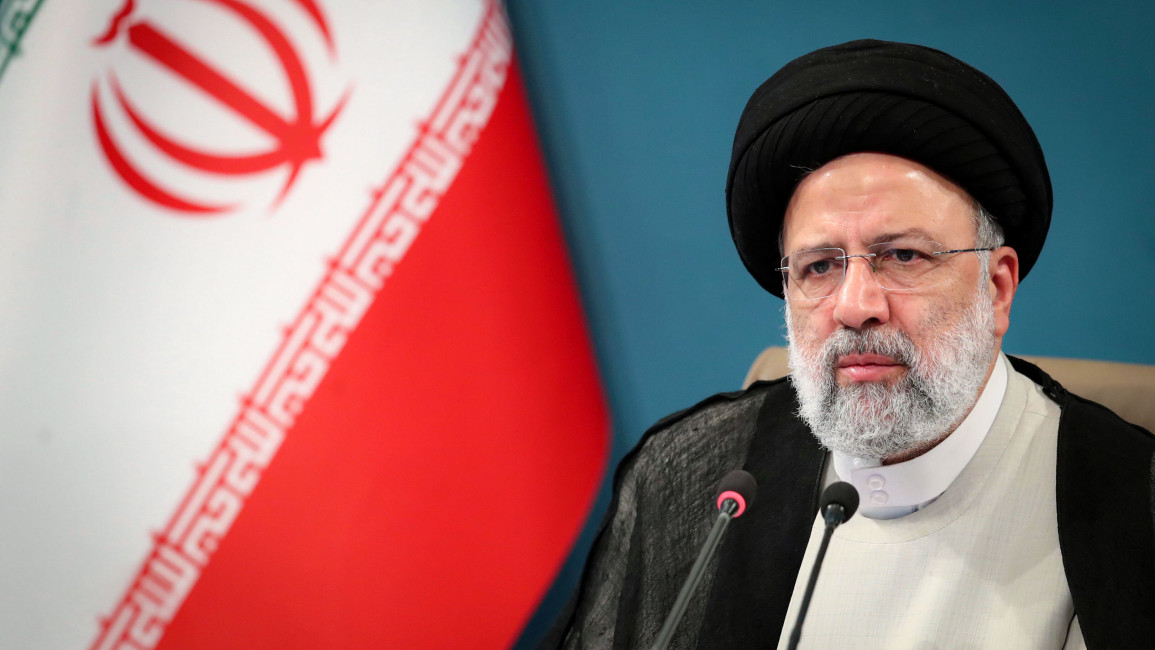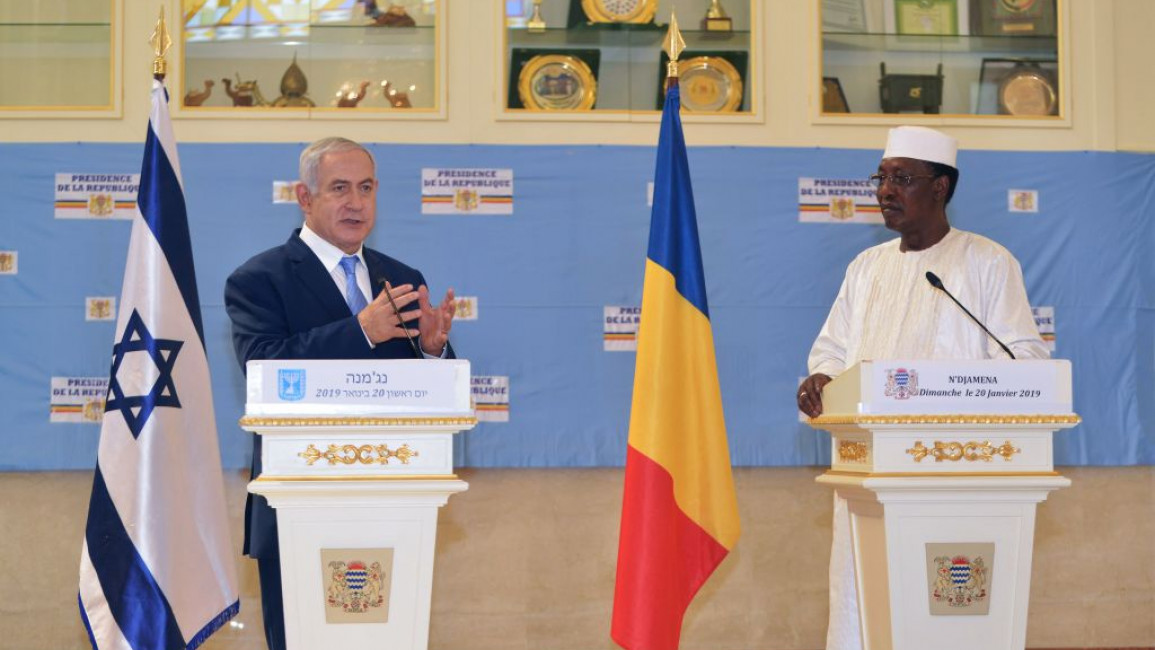
Iran's growing outreach to Africa

Tehran has recently stepped up its outreach to the African continent, even as negotiations for the resumption of the Joint Comprehensive Plan of Action (JCPOA) approach their final phase.
Having made some headway in fulfilling its economic and strategic objectives in Africa, Tehran is likely to remain deeply engaged there even if the nuclear deal is revived.
With talks for the resumption of the JCPOA failing to yield any breakthrough, Iran wishes to consolidate its position in other parts of the world. Emphasising the need for a reset in relations, Raisi has stated that Africa is one of the main axes of his government’s foreign policy and Iran was “a reliable partner for African countries”.
Replete with opportunities, the African continent can help Iran expand its global influence, both regionally and globally, as well as provide alternate markets and trade opportunities.
"Iran's outreach to Africa in some ways is a return to the policy orientation of former President Mahmoud Ahmadinejad, who increased Tehran's diplomatic footprint on the continent"
On 16 August, a 60-member trade delegation from Mauritius visited Iran to upgrade ties, and a few days later, the Minister of Foreign Affairs Hossein Amir-Abdollahian left for his first trip to Africa since assuming office.
Visiting Mali, Tanzania, and Zanzibar, Amir-Abdollahian held several high-level meetings with African leaders accompanied by a team of economic experts. After signing a memorandum of understanding (MoU) for the first joint commission for comprehensive cooperation in Mali, Amir-Abdollahian arrived in Tanzania where he announced the creation of a roadmap for pursuing similar goals.
There are several main factors behind Iran’s growing presence in Africa. Firstly, similar to Tehran’s “look East” overtures, connecting with Africa can help improve Iran’s global image.
Initially, Tehran set its sights on Africa during the presidency of Mahmoud Ahmadinejad (2005-13), who promoted a ‘South-South cooperation’ strategy by supplying Iranian oil, building infrastructure, and setting up Iranian companies there.
Then, during Hasan Rouhani’s stint in power, the focus shifted to the JCPOA deal and the Western world, while Africa was forgotten.
“The recent visit of FM Abdollahian to Africa should be read in the context of the new approach towards the African countries promoted by Raisi after he became President in 2021,” a European diplomat posted in Islamabad told The New Arab on the condition of anonymity.
“It is widely regarded as an attempt by Khamenei’s circle of power to ‘resettle’ the relationship with the African continent after the experience of Rouhani’s presidency, considered by influential IRGC quarters as too focused on the JCPOA and improving relations with the West.”
|
|
Furthermore, the diplomat pointed out that various factions are now interested in pursuing the African policy promoted years ago by Ahmadinejad, regardless of the low level of trade with African countries. This approach is very much influenced today by the uncertainties related to the JCPOA talks.
“Influential quarters are convinced that there won’t be any deal, at least in the medium term, consequently they support a ‘diversification’ of Iranian foreign policy aimed not only to support Shias communities abroad but also to expand relationships with foreign markets rich in raw materials and resources, in the meantime countering US and Israel influence in those countries,” the diplomat said.
Abdollahian, often referred to as the ‘revolutionary diplomat’ in Iran, was appointed during Ahmadinejad’s government as Deputy Minister for Arab and African Affairs before being removed by then-foreign minister Mohammad Javad Zarif in 2016.
It is also worth remembering, according to the diplomat, that “Ismail Qaani, the new commander of the elite Quds Force, had an extensive experience with Africa’s file when he was the deputy of [Qasem] Soleimani, having made several trips in several African countries at the time of Ahmadinejad’s administration (of which its role in Africa and the reasons of his trips are largely debated)".
"This time around, the strategic playing field is more complex as Iran's regional rivals - Turkey, Saudi Arabia, the UAE, Egypt, and Israel - have each developed extensive economic and security relations across the continent"
Secondly, in the past, economic ties with Africa have helped Iran evade economic sanctions.
“Iran’s outreach to Africa in some ways is a return to the policy orientation of former President Mahmoud Ahmadinejad (2005-13) who increased Tehran’s diplomatic footprint on the continent by expanding the number of Iranian embassies in Africa and travelling there more often than any previous president,” Professor Michaël Tanchum, a non-resident fellow in the Economics and Energy program at the Middle East Institute (MEI) and a senior fellow at the Austrian Institute for European and Security Studies (AIES) told The New Arab.
“That policy was based on mobilising anti-Western solidarity and looking for economic opportunities to get around the impact of sanctions.”
When the US withdrew from the nuclear deal, the European Union (EU) was unable to compensate for Tehran’s economic loss. Consequently, Iran started exploring the untapped African market with its service-based private companies. This experiment was successful and it became a viable method for circumventing economic sanctions.
Even if the JCPOA gets revived and sanctions are lifted, Iran will profit even more from its African connections. The difference will be that smaller companies on the ground will be gradually replaced by oil concerns and bigger production companies.
Working on options to boost bilateral trade, a meeting with fifteen African ambassadors to Iran was arranged by parliamentarians in Tehran on the occasion of Africa Day on 25 May. In addition, nearly 400 African business delegations have visited Iran this year.
Despite African countries having a trading volume worth around one thousand billion dollars, their trade with Iran is less than one billion dollars. As a result, Abbas Golrou, Chairman of the Iranian parliament’s National Security and Foreign Policy Committee, has stressed the need for sustained economic engagement.
Mohamed Sadegh Ghanadzadeh who heads the Department of African Affairs in the Iranian Trade Promotion Organization (TPO) has announced that the TPO would increase trade centres in Africa from just 3 to 10 by next year.
|
|
Thirdly, by expanding its influence in Africa, Iran can compete with regional rivals such as Saudi Arabia and Turkey, which are quite active on the continent.
However, according to Prof. Tanchum, “This time around the strategic playing field is more complex as Iran’s regional rivals - Turkey, Saudi Arabia, the UAE, Egypt, and Israel - have each developed extensive economic and security relations across the continent. From this perspective, Iran’s new outreach is part of a larger Middle Eastern trend to which Tehran is a relative latecomer.”
Therefore, Tehran either tries to further its Shia ideology in countries like Nigeria, Senegal, and Tanzania, or gains influence by empathising with governments with anti-colonial, anti-Western sentiments. Geopolitically, Iran can gain influence by strengthening its foothold near regional crisis spots in Africa
“The nations of the wider East African region hold particular interest for Iran’s Indian Ocean Region strategy and because of Tehran’s presence in Yemen located across the Red Sea-Gulf of Aden corridor from The Horn of Africa,” Prof. Tanchum told TNA.
"Iran's new outreach is part of a larger Middle Eastern trend to which Tehran is a relative latecomer"
“Iran is also trying to leverage Shia minority communities in African nations. Tehran may also be able to utilise Hezbollah’s financial networks in various areas of Africa as well.”
In the days ahead, Iran’s growing presence in Africa could enflame the Iran-Israeli rivalry as two African states, Morocco and Sudan, have become part of the Abraham Accords. Meanwhile, many other states have normalisation agreements with Israel.
Finally, Iran has also received support from African countries in the United Nations and other regional and international organisations. For example, the head of the South African parliament had said that his country supports Iran’s accession to BRICS in 2017.
This October, the 15th meeting of the High Joint Committee between Iran and South Africa will be held in Pretoria. In addition, the South African Deputy Minister of International Relations and Cooperation visited Tehran in May to meet the Iranian Deputy Foreign Minister Mehdi Safari.
Sabena Siddiqui is a foreign affairs journalist, lawyer, and geopolitical analyst specialising in modern China, the Belt and Road Initiative, the Middle East and South Asia.
Follow her on Twitter: @sabena_siddiqi




